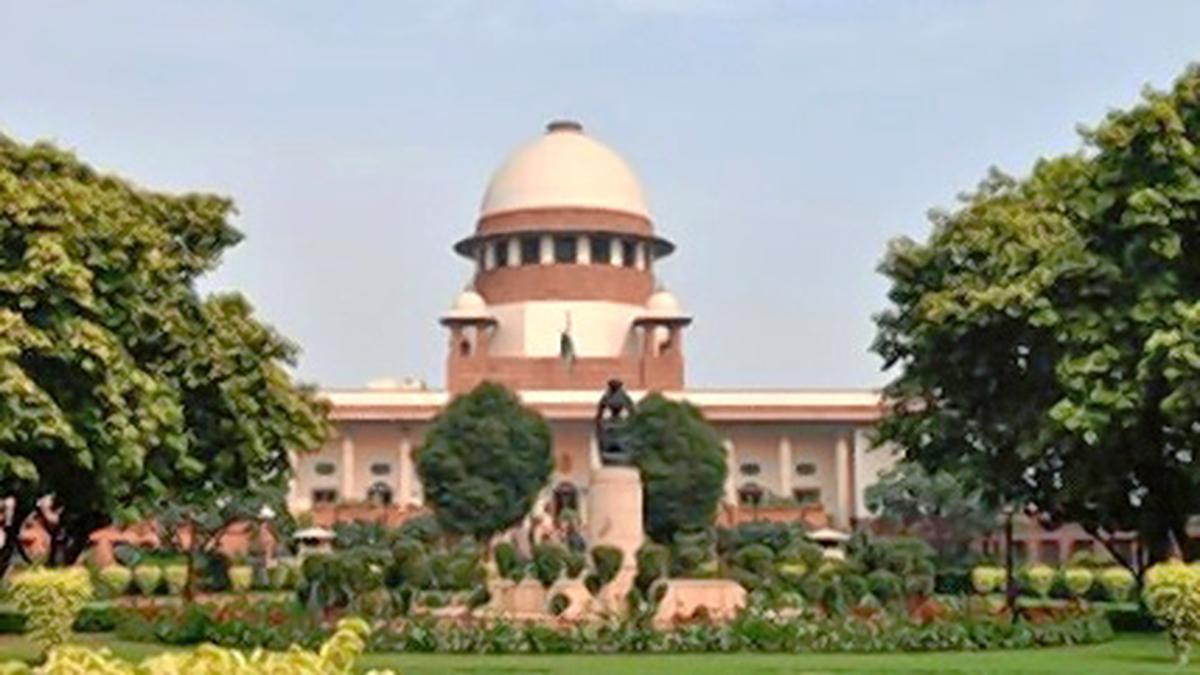 |
|
The Supreme Court of India issued a sharp reprimand to the Assam state government on February 4, 2025, for its prolonged and seemingly indefinite detention of individuals declared as foreigners. The court's concern centered on the lack of progress in deporting these individuals, questioning whether the state was deliberately delaying the process. The judges expressed astonishment at the state's claim that it couldn't send nationality verification forms to the Ministry of External Affairs because the detainees' addresses in their home countries were unknown. The justices argued that the location of these individuals should not impede the deportation process; once declared foreigners, the logical next step is immediate deportation. This inaction, the court contended, violated Article 21 of the Indian Constitution, which guarantees the right to life and personal liberty. The prolonged detention, potentially spanning over a decade for some, raises serious human rights concerns and places a significant burden on the public exchequer. The court's questioning implicitly highlighted the ethical implications of indefinite detention without due process and the lack of clear pathways for resolution.
The Supreme Court's intervention underscores the complex legal and diplomatic challenges surrounding the issue of statelessness and deportation. The case highlighted the precarious situation of individuals caught in a bureaucratic quagmire between India and Bangladesh. Bangladesh's refusal to accept individuals who have lived in India for extended periods further complicates the matter, leaving these individuals in a state of limbo. The court's directive to the central government to provide details on the number of deported foreigners and the handling of cases with unknown nationality underscores the need for greater transparency and accountability. This case underscores the limitations of the current legal framework in dealing with stateless individuals and the urgent need for a more comprehensive solution that respects human rights and international norms. The court's order for surprise inspections of detention facilities also demonstrates a commitment to ensuring humane conditions for those detained, even as the larger issue of their legal status remains unresolved.
The involvement of the Solicitor General, Tushar Mehta, signals the central government's recognition of the issue's significance and the need for diplomatic engagement with Bangladesh. Mr. Mehta's commitment to collaborating with the Ministry of External Affairs reflects the understanding that deportation is not solely a state matter but requires international cooperation. However, the ongoing refusal by Bangladesh to accept these individuals raises concerns about the viability of deportation as a solution. This highlights the need for a broader, multilateral approach that considers the root causes of statelessness, such as porous borders and inadequate documentation, and explores alternative solutions that protect the rights and well-being of those affected. The court's decision to adjourn the case to February 25, 2025, suggests an ongoing commitment to monitoring the situation and ensuring that the Assam government takes concrete steps to address the concerns raised. The court’s actions serve as a crucial reminder of the judiciary's role in safeguarding fundamental rights and holding the state accountable for its actions.
The case highlights the broader humanitarian crisis facing stateless individuals globally. It emphasizes the need for robust international cooperation to address the complexities of statelessness and to create mechanisms that protect the rights and dignity of individuals caught in such situations. The case also underscores the need for improvements in the processes of determining nationality, ensuring due process, and providing adequate legal representation for those facing deportation. The Supreme Court's decision represents a significant step towards addressing the systemic issues surrounding the indefinite detention of declared foreigners in Assam, and its actions will be closely watched by human rights organizations and international observers alike. The long-term solution, however, likely requires a multifaceted approach involving diplomatic engagement, legal reforms, and a commitment to ensuring humane treatment for all individuals, regardless of their nationality status. The ongoing saga of these individuals serves as a stark reminder of the human cost of bureaucratic inaction and international political stalemate.
Source: SC pulls up Assam on ‘indefinite’ detention of declared foreigners
